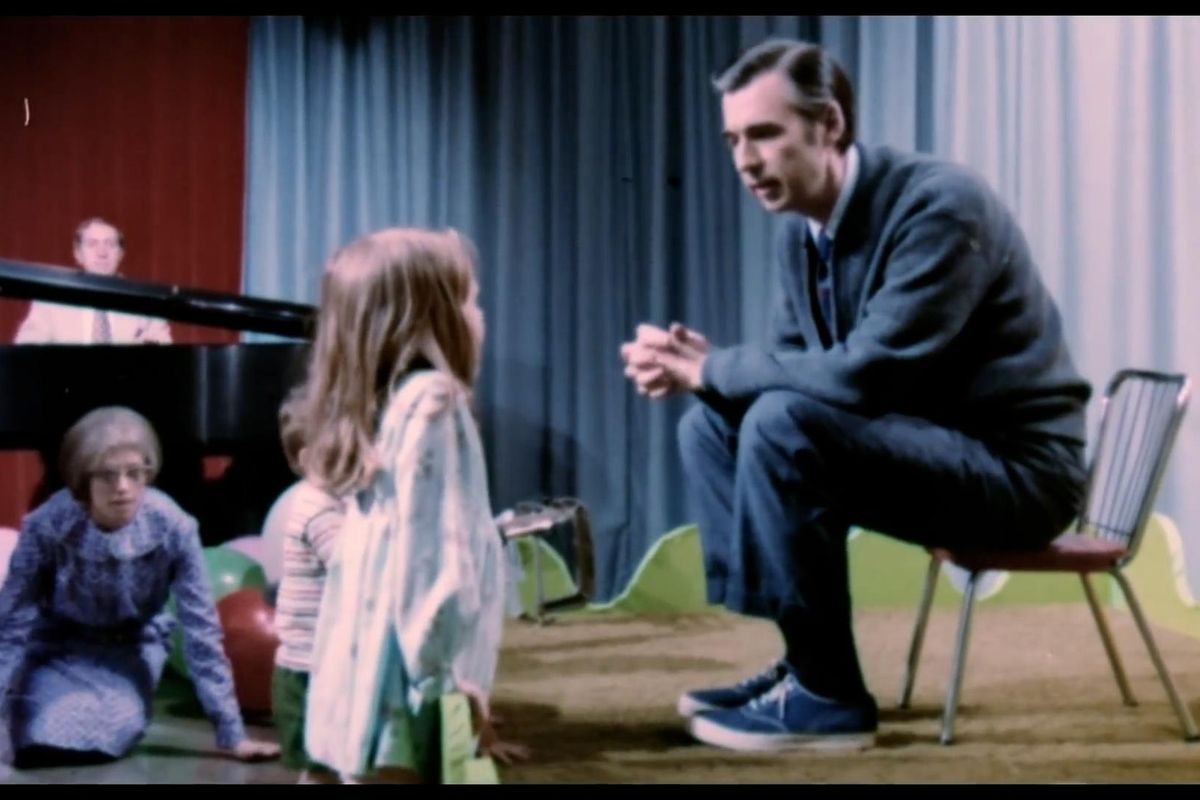Epic video of Mister Rogers addressing Congress resurfaces amid threats to gut PBS funding
"Looks like you just earned yourself the $20 million."
Epic video of Mister Rogers addressing congress for PBS resurfaces
PBS has been around for generations providing families with wholesome family entertainment, educational programming, and fair and balanced news. Many people rely on PBS for emergency alerts in rural areas as it can be one of the only broadcasting channels available in some places. But recently, Congress has brought up the idea of cutting critical funding to PBS and NPR, both of which are publicly funded as a means to keep people informed.
The services provided by PBS (Public Broadcasting Station) and NPR (National Public Radio) are public and partly funded by taxpayer dollars. Congress members are considering legislation that would essentially prohibit the federal government from allocating tax dollars to support public broadcasting. This proposal to gut funding led to the chief executives from PBS and NPR being questioned at length during a congressional hearing.
Are people seeing this?
This is Democrat Rep Robert Garcia discussing SESAME STREET characters Elmo, Cookie Monster and Big Bird in a House #DOGE Subcommittee hearing.
He actually asked Ms Kerger (PBS) if Elmo is a Communist Party member.
And he appears to be serious. pic.twitter.com/teE87MhTvL
— ♔ Jennifer ♔ (@jennifergeneve) March 26, 2025
While some of the optics and questions from the hearing were amusing, the need to (once again) defend public broadcasting caused a decades old clip of Mister Rogers to circulate social media. In May 1969, Mister Rogers headed to Congress to stress the importance of funding for the newly formed Corporation for Public Broadcasting, which distributes the government funding to PBS and NPR. At the time, Congress was wanting to slash their $20 million in funding to just $10 million—which would've had significant consequences for shows like his.
Fred Rogers was up against a tough crowd, but the PBS executive that introduced him prepped the Congressional committee for his kind nature.

"Mister Rogers is certainly one of the best things to ever happen to public television and his Peabody Award is testament to that fact. We in public television are proud of Fred Rogers and I'm proud to present Mister Rogers to you now," the executive says.
If you've ever seen an episode of Mister Rogers' Neighborhood then you're aware of his kind, gentle nature, but Subcommittee chairman, Senator John Pastore (D-RI), didn't know anything about everyone's favorite neighbor. The senator was quite rude towards him and appeared to be overall annoyed with Mister Rogers' presence—but that didn't deter the children's show creator.
Rogers shares how his program went from a $30 budget to a $6,000 budget with the help of additional funding before dropping shocking information.
"But $6,000 pays for less than two minutes of cartoons. Two minutes of animated, what I sometimes say, bombardment. I'm very much concerned as I know you are about what's being delivered to our children in this country and I've worked in the field of child development for six years now, trying to understand the inner needs of children. We deal with such things as the inner drama of childhood," Roger tells the subcommittee.
Mister Rogers delivers his whole speech in that familiar comforting cadence which clearly impacts how his message is received. You can watch the congressman relax and become more engaged in real time while Rogers explains what he does with his thirty minute kids show.

"We made a hundred programs for EEN, the Eastern Educational Network, and then when the money ran out, people in Boston, in Pittsburgh, and Chicago all came to the floor and said 'we've got to have more of this neighborhood expression of care' and this is what...this is what I give. I give an expression of care every day to each child to help him realize that he is unique," he says in part.
By the end of the meeting Mister Rogers had won over the senator. "I think it's wonderful. I think it's wonderful. Looks like you just earned yourself the $20 million," the senator says.
Watch Mister Rogers' full speech to Congress here:
There's no Mister Rogers this time to head to Congress and try to convince them not to cut vital public broadcasting funding, but it's important to remain hopeful. Communities still rely on the programming for news, alerts, and educational programs like Mister Rogers' Neighborhood, (reruns of which still air on the network today).
For now, the fate of federal funding for PBS and NPR is still in the air, but the recirculation of Mister Rogers' congressional visit is reminding us exactly why public broadcasting is so important.





 File:Mister-Rogers-Congress.jpg - Wikimedia Commons
File:Mister-Rogers-Congress.jpg - Wikimedia Commons